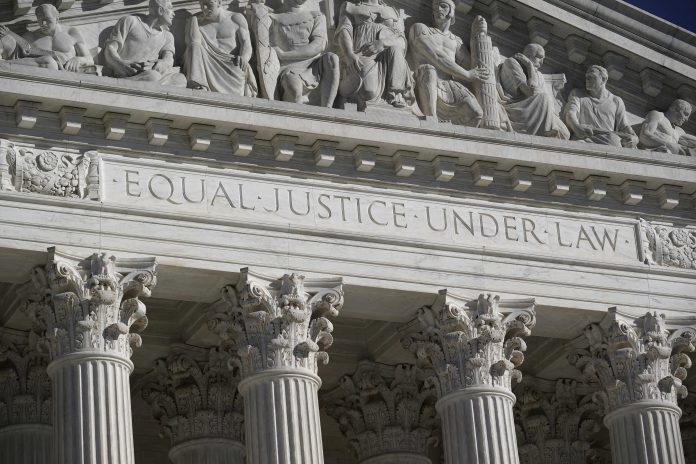
Associated Press
WASHINGTON (AP) — The Supreme Court won’t weigh in on the legality of a controversial Trump administration immigration policy after an agreement by the Biden administration and states and groups challenging it. The agreement comes amid the Biden administration’s reconsideration of the so-called public charge rule.
It’s just the latest outgrowth of the Biden administration’s effort to undo Trump administration immigration policies. The new administration recently dismissed high court appeals over former President Donald Trump’s effort to deny funding to so-called sanctuary communities.
The justices, at the administration’s request, also put off cases they had agreed to hear over the funding of portions of the wall along the border with Mexico and the policy of forcing asylum seekers to wait in Mexico for their hearings
The high court had in late February agreed to hear a Trump administration appeal of a lower court ruling against the public charge rule. The policy allows the denial of permanent residency status to immigrants because of their use of food stamps, Medicaid, housing vouchers or other public benefits. The justices had agreed to hear the case even as President Joe Biden called for a “top-to-bottom” review of the rule.
On Tuesday, however, the Biden administration withdrew the appeal, saying all parties involved agreed to dismiss the case.
The immigrant groups that had been challenging the policy said that clears “the way at last for this unlawful rule to no longer be enforced.” Previously, the Supreme Court had divided 5-4 over allowing the policy to take effect while the legal challenge continued. The legal challenge involved New York, Connecticut, Vermont, New York City and several organizations.
Under the Trump administration policy, applicants for green cards had to show they wouldn’t be burdens to the country or “public charges.”
Federal law already required those seeking permanent residency or legal status to prove they wouldn’t be a “public charge.” But the Trump administration rule included a wider range of programs that could disqualify them.
Immigrant rights advocates deemed it a “wealth test,” while public health experts said it would mean poorer health outcomes and rising costs as low-income migrants chose between needed services and their bid to stay in the country legally.
















